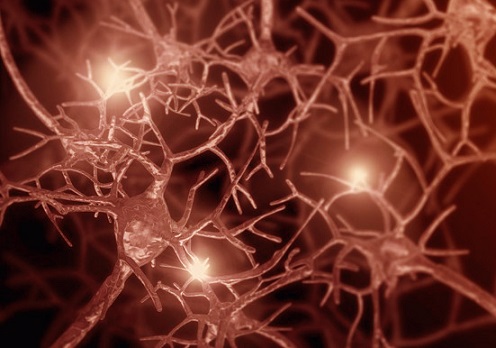SARS-CoV-2 Nsp7 Protein Impairs Synaptic Plasticity in the Brain Leading to Memory Loss
Nikhil Prasad Fact checked by:Thailand Medical News Team Nov 22, 2024 4 months, 3 weeks, 7 hours, 11 minutes ago
Medical News: Recent research has unearthed how SARS-CoV-2, the virus responsible for COVID-19, could be meddling with the brain's ability to form and retrieve memories. A groundbreaking study led by a team from the Hubei Key Laboratory of Cognitive and Affective Disorders at Jianghan University, Wuhan, China, has identified a key viral protein - Nsp7 - as a culprit behind cognitive dysfunction and memory loss. The findings shed light on why some COVID-19 patients experience lingering neurological symptoms, such as difficulty concentrating and forgetfulness, long after recovering from the virus.
 SARS-CoV-2 Nsp7 Protein Impairs Synaptic Plasticity in the Brain Leading to Memory Loss
What Is Synaptic Plasticity and Why Does It Matter?
SARS-CoV-2 Nsp7 Protein Impairs Synaptic Plasticity in the Brain Leading to Memory Loss
What Is Synaptic Plasticity and Why Does It Matter?
Synaptic plasticity refers to the brain's ability to adapt, reorganize, and strengthen connections between neurons. This process is vital for learning, memory, and overall cognitive functioning. Any disruption to this delicate mechanism can lead to serious cognitive issues. Previous studies have linked viral infections to neurological symptoms, but the exact mechanisms were unclear. This
Medical News report dives deeper into how SARS-CoV-2 specifically disrupts brain functions.
The Jianghan University researchers found that Nsp7, a non-structural protein of the virus, interferes with synaptic plasticity. Their experiments demonstrated that this disruption is due to mitochondrial damage - a critical component in maintaining neuronal energy and function.
How Does Nsp7 Affect the Brain?
The study began by investigating the levels of synapse-related proteins in human neuronal cells infected with SARS-CoV-2. The results were alarming. Synaptic proteins, essential for transmitting signals between neurons, were significantly reduced. Among the 16 non-structural proteins produced by the virus, Nsp7 was identified as the primary driver behind this decrease.
To further explore these effects, the researchers injected Nsp7 into the ventral hippocampus of mice. This region of the brain plays a key role in memory formation. The mice exhibited severe memory impairments, reduced dendritic spine density (tiny structures on neurons that aid in signal transmission), and a decline in synaptic proteins. These findings confirmed that Nsp7 directly impairs brain function.
Unveiling the Role of Mitochondria
Mitochondria, often called the "powerhouses" of cells, are critical for maintaining neuronal health. However, the study revealed that Nsp7 damages mitochondria in neurons, leading to increased production of reactive oxygen species (ROS) and reduced ATP levels, the energy currency of cells. The accumulation of ROS causes oxidative stress, which further harms neurons and disrupts synaptic plasticity.
Using advanced imaging techniques, the researchers observed mitochondrial swelling and cristae damage in cells expressing Nsp7. These changes are hallmark signs of mitochondrial dysfunction. To counteract these effects, the
team introduced an antioxidant, N-acetylcysteine (NAC), which successfully reduced oxidative stress and partially restored synaptic protein levels.
Behavioral Tests Confirm Cognitive Impairment
To assess the real-world impact of Nsp7 on cognition, mice were subjected to behavioral tests after the protein was overexpressed in their hippocampus. These tests included:
-Novel Object Recognition Test: Mice showed difficulty in recognizing new objects, a clear sign of memory impairment.
-Fear Conditioning Test: Nsp7-expressing mice struggled to associate specific environments with past events, indicating deficits in both learning and memory retrieval.
-Barnes Maze Test: While spatial learning remained intact, the mice's ability to recall and navigate a familiar path was compromised.
These tests conclusively demonstrated that Nsp7 affects memory and learning capabilities.
Why This Study Matters
The findings highlight how SARS-CoV-2 goes beyond the respiratory system, targeting the brain in ways that can have lasting consequences. While many have focused on the virus's effects on the lungs and heart, this study emphasizes the need to address neurological symptoms in long COVID patients. The identification of Nsp7 as a key player opens avenues for targeted therapies to mitigate its impact on the brain.
The study also underscores the role of mitochondria in brain health. Mitochondrial damage is not unique to SARS-CoV-2 - it has been observed in other viral infections and neurodegenerative diseases like Alzheimer’s and Parkinson’s. By understanding how viruses like SARS-CoV-2 exploit these mechanisms, researchers can develop treatments to protect the brain from similar attacks in the future.
Conclusion
In summary, the SARS-CoV-2 protein Nsp7 disrupts synaptic plasticity in the brain by causing mitochondrial damage. This leads to a cascade of effects, including reduced synaptic proteins, oxidative stress, and memory impairments. Behavioral tests in mice confirmed the devastating impact of Nsp7 on cognitive functions. These findings provide critical insights into the neurological complications associated with COVID-19 and highlight the need for targeted therapies to address these issues.
As the world continues to grapple with the long-term effects of the pandemic, this study serves as a reminder that the virus's impact extends far beyond acute infection. By understanding the molecular mechanisms at play, we can better equip ourselves to combat the lasting consequences of COVID-19 on brain health.
The study findings were published in the peer-reviewed journal: Frontiers in Neuroscience.
https://www.frontiersin.org/journals/neuroscience/articles/10.3389/fnins.2024.1490099/full
For the latest COVID-19 News, keep on logging to Thailand
Medical News.
Read Also:
https://www.thailandmedical.news/news/new-research-links-covid-19-inflammation-to-memory-issues-months-after-recovery
https://www.thailandmedical.news/news/oxford-study-reveals-that-mild-covid-19-impairs-long-term-memory-but-not-short-term-memory
https://www.thailandmedical.news/news/research-reveals-alarming-link-between-covid-19-and-memory-loss
https://www.thailandmedical.news/news/scientist-from-brazil-find-that-sars-cov-2-spike-proteins-causes-memory-loss
Follow Us:
https://x.com/ThailandMedicaX
https://bsky.app/profile/thailandmedical.bsky.social
https://gettr.com/user/thailandmedicalnews
https://www.facebook.com/ThailandMedicalNews
